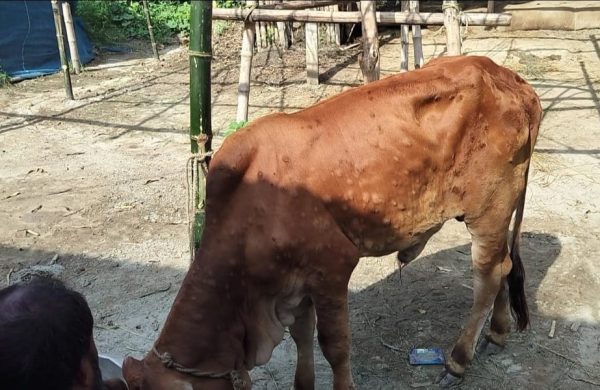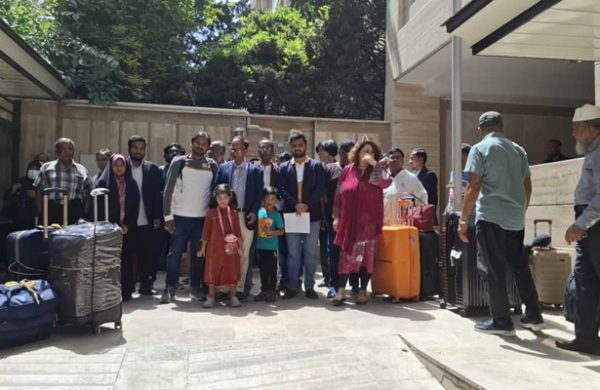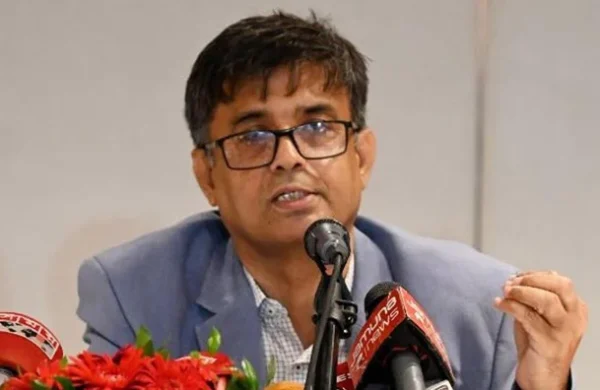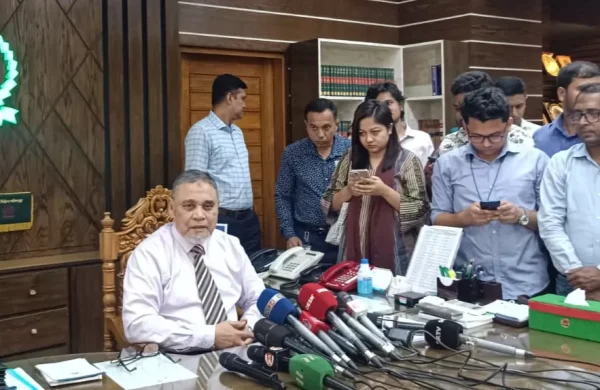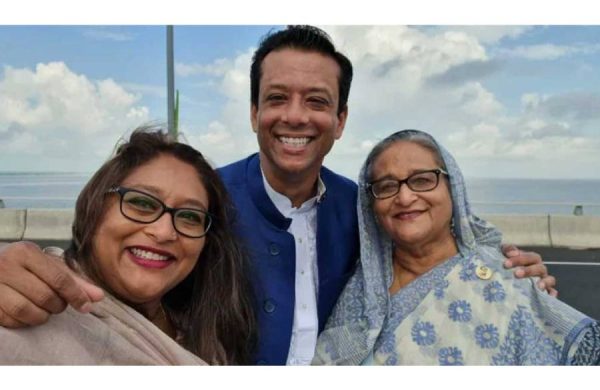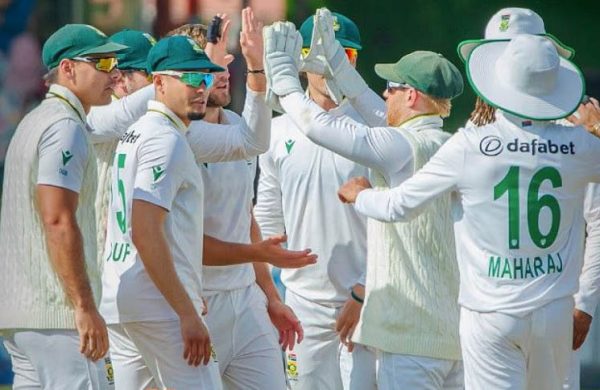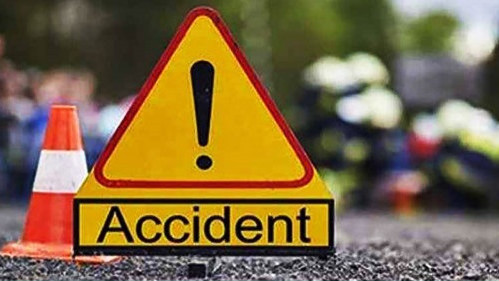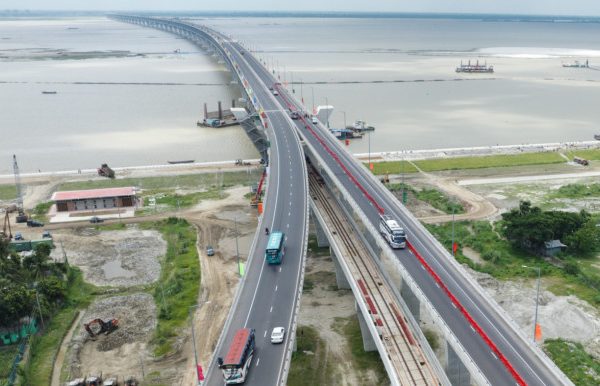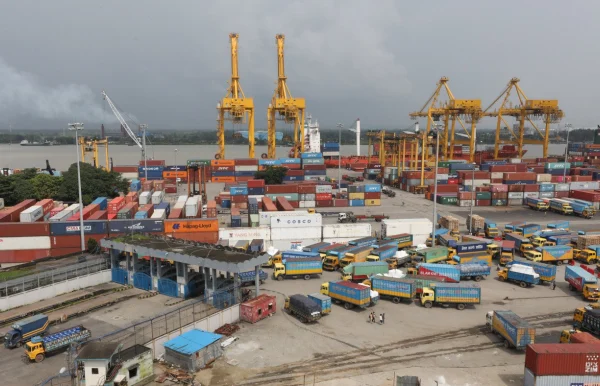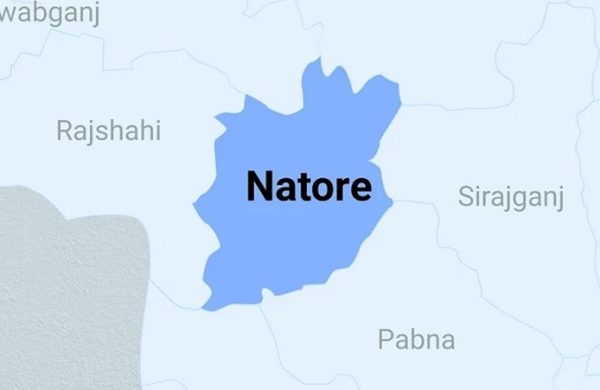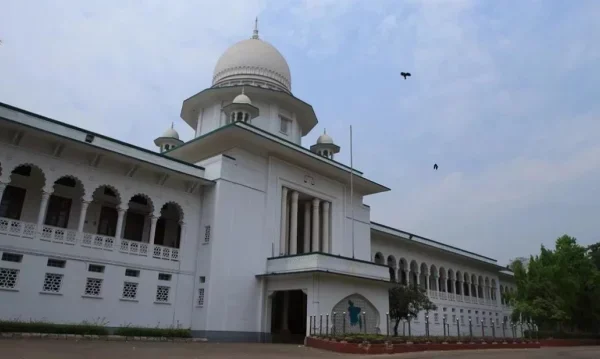Defence, Teesta project, port likely to get priority during PM’S India visit
- Update Time : Thursday, June 20, 2024
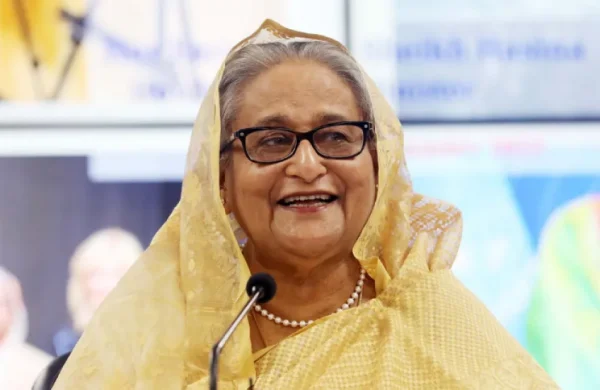
TDS Desk:
Defence, Teesta project, trade and port are likely to get highly priority in the agenda during Prime Minister’s visit to India, scheduled on June 21-22, sources said.
Prime Minister Sheikh Hasina’s upcoming visit to New Delhi on June 21-22 will focus on some key issues in bilateral relations that have regional geopolitical significance.
Issues such as water, port and defence will be discussed, it was learnt from diplomatic sources in Dhaka and New Delhi.
Fresh loans from India under a new framework will also be high on the agenda of the bilateral talks as Bangladesh grapples with a crunch in foreign currency reserves, they said.
Besides, the Myanmar crisis, especially the intense fighting in Rakhine State, will feature prominently during the delegation-level meeting between Hasina and her Indian counterpart Narendra Modi.
On June 22, The Bangladesh premier will hold the delegation-level meeting centring on a new phase in the bilateral relationship, a diplomat said.
The two countries are finalising several agreements and memorandums of understanding that may be signed during Hasina’s tour of India.
—TEESTA PROJECT—
The issue of funding for the “Teesta River Comprehensive Management and Restoration Project” will feature prominently in the talks, according to diplomatic sources in Dhaka and New Delhi.
The agreement was finalised in 2011, but could not be inked due to opposition from West Bengal.
The Economic Relations Division sought a $983.27 million loan from China to implement the Teesta project, which includes river dredging, setting up reservoirs and building townships along the river.
On October 13, 2022, then-Chinese ambassador to Bangladesh Li Jiming said his country was serious about implementing the project, but also had a sense of reluctance due to sensitive issues surrounding it.
During a visit to Dhaka on May 9, Indian Foreign Secretary Vinay Mohan Kwatra told Foreign Minister Hasan Mahmud that India was interested in financing the Teesta project.
On June 13, Hasina told the parliament that the government was considering a proposal for a detailed feasibility study for the Teesta project as China’s evaluation pointed out that there was a lack of detailed proposals on land development and water navigation.
“Our government needs to know whether India would sign the Teesta water sharing agreement because the river restoration and management project would depend on this,” said Faiz Ahmad, a former ambassador of Bangladesh to China.
India and China also can fund different components of the project, said Ahmad, also a former chair of the Bangladesh Institute of International and Strategic Studies.
A diplomat in New Delhi said the two prime ministers will also discuss the renewal of the Ganges Water Sharing Treaty that was signed in 1996. The treaty is set to expire in 2026.
—MONGLA PORT—
India is keen to manage the Mongla river port, which is crucial for better connectivity between Kolkata and India’s north-eastern states, said a diplomatic source in New Delhi.
According to a report in India’s The Economic Times, India has shown interest in managing Mongla port as it aligns with the country’s broader strategy to counter China’s expanding influence in the region.
It should not be an issue if Bangladesh gives the port handling work to India, Ahmad said.
“Japan is already working on Matarbari deep sea port, and China can manage the Payra Port in Patuakhali. But we need to be careful so that we don’t upset anyone by satisfying another,” he added.
India is also keen to develop an alternative network of railway routes through Bangladesh to connect its northeast with the rest of the country. This would reduce India’s reliance on the existing route through Siliguri, according to a report by The Times of India.
“Detailed negotiation on such projects is needed to know whether Indian trains will run on Bangladesh’s territory and whether Bangladesh’s trains can use India’s territories,” Ahmad said.
According to sources, India may in principle approve the supply of electricity from Bhutan to Bangladesh using its power grid.
India is also likely to push for defence equipment sales to Bangladesh under the $500 million line of credit.
Bangladesh will seek smooth supply of essentials like wheat, sugar and onions from India.
The two leaders may also announce the launch of formal negotiations for a comprehensive economic partnership agreement (CEPA), said Bangladesh foreign ministry sources.
The issue of border killings will also be on the agenda.


